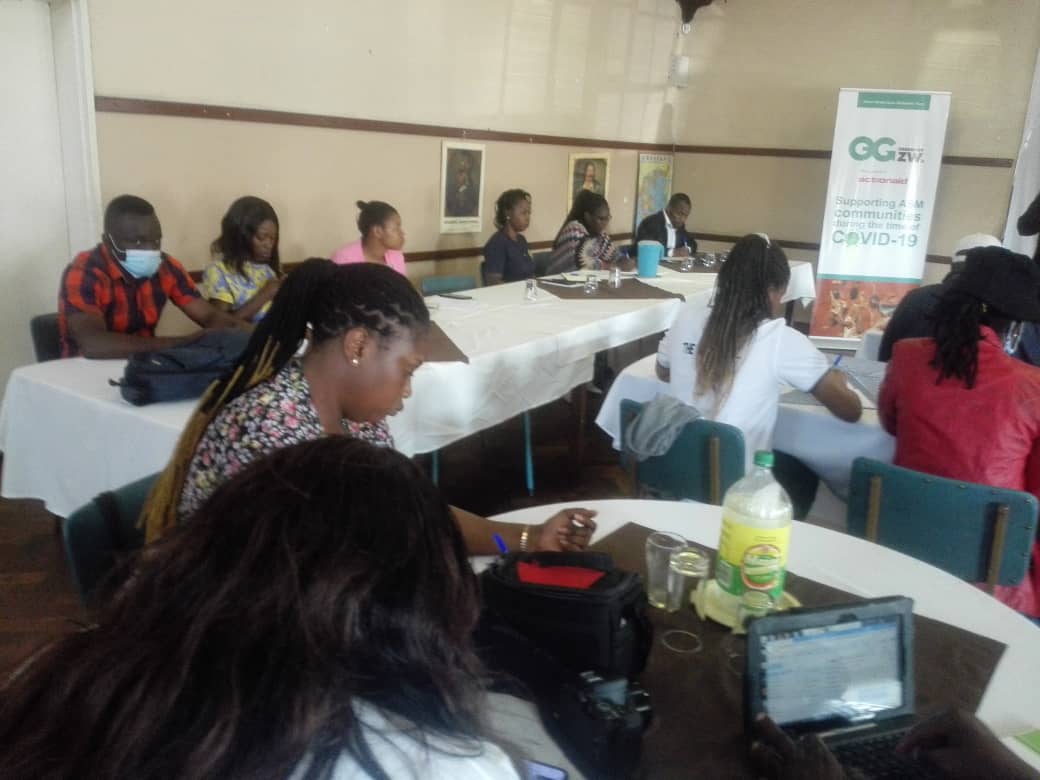|
Getting your Trinity Audio player ready...
|
By Clayton Masekesa
MUTARE – A local Non Governmental Organization (NGO) – Green Governance Zimbabwe Trust (GGZT) – has launched a Tax Justice and Equality For Youth programme that is aimed at creating a platform for them to speak out against the rising inequalities they experience in mining communities.
In an interview with this publication on the sidelines of the programme’s stakeholder consultation and sensitization meeting held in Mutare recently, the GGZT Executive Director, Frank Mpahlo, said the programme is aimed at giving the youths in various communities where minerals are being mined space to raise issues affecting them and actively participate in mineral and natural resource governance.
“We want youths to set an agenda for increased oversight adherence and compliance to issues on mineral resource governance. There is lack of youth involvement across natural resource governance and their voices are rarely captured speaking out against impacts of flawed mineral governance that usually leads to illicit financial flows,” Mpahlo said.
“Other countries are hugely developing from their mineral and natural resources. Communities in those countries are living better lives, but, we are surprised by the fact that communities in Zimbabwe where mining is taking place are not developing. These are the issues that we should raise and ask questions,” he said.
The Tax Justice and Equality For Youth programme coordinator, Lewis Marowa, said having natural resources in Zimbabwe seems to be a curse.
“It seems that a country having such mineral and natural resources is a curse. The mining communities are characterized by poor access to water, no health facilities, few educational facilities and dilapidated roads, which impact on the youths. It is important for youths to raise such issues. It is why we have launched this programme so that the youths can express consolidated voices on mining issues,” Marowa said.
Speaking on the same event, the Transparency International Zimbabwe (TIZ) Mutare Research and Advocacy Officer, Sam Matikiti, said the illicit financial flows in the mining sector have been a growing concern since the 1990s but have now reached unprecedented levels since the discovery of diamonds in Marange in 2006.
Matikiti said the mining of minerals introduced Zimbabwe’s ruling elites to international criminal networks that provided ready markets for smuggled minerals.
“It is not a secret that there is rampant corruption in the mining sector. It seems that there is no rule of law in terms of how the minerals are governed,” he said.
Matikiti urged the youths to be vocal on the political economy of illicit mining and trade in Zimbabwe and expose the vague relationship between partisan politics and access to mining rights by close syndicates.
“The mining sector has remained one of the most corrupt and mismanaged sectors yet it has the capacity to transform the fortunes of the country if prudently handled,” said Matikiti.
Freeman Boso from the Zimbabwe Natural Resource Governance Forum (ZNNGR) said youths should raise concerns on poor corporate social responsibility (CSR) programmes being initiated by companies mining in their communities.
“CSR within the mining sector should be a central part of mine-community relations. Mining companies must accept that the communities affected by their operations need to have basic services like water, health care, electricity, and sanitation. Developing a mine presents an opportunity to improve conditions within these communities,” Boso said.
“The biggest challenge is that CSR is not legally enforceable. Mining companies are not compelled at law to build clinics, schools among any infrastructural development. So the mining companies cannot be taken to court for not building schools and clinics,” he explained.
Boso said the youths must now have dialogue with the mining companies to document signed agreements on corporate social responsible programmes and contracts.
“This will help in confronting the mining companies if they fail to fulfill their obligations as agreed in the signed contracts,” he said.
There are a number of international initiatives and associations that promote best practices and corporate social responsibility (CSR) within the mining sector including the United Nations Global Compact initiative in which companies self-evaluate and report their performance based on a number of principles that must be observed. These include the protection of human rights; fair labour practices; protection of the environment; anti-corruption; integration of sustainable development considerations within the corporate decision-making process; upholding of fundamental human rights and respect cultures, customs, and values in dealings with employees and others, and seek continual improvement in environmental performance, and contribute to the social, economic and institutional development of the communities in which they operate; and the implementation of effective and transparent engagement, communication and independently verified reporting arrangements with their stakeholders.
Many major mining companies also publish annual sustainability and CSR reports in addition to more conventional financial reports in an attempt to satisfy the new international stance, even where the operating conditions do not make it mandatory.
Given the recently promulgated indigenisation and empowerment laws in Zimbabwe, it is envisaged that Corporate Social Responsibility programs will begin to form a major component of the compliance package for indigenisation and economic empowerment within the mining sector.
It is therefore imperative that mining companies within Zimbabwe reassess their CSR programs to ensure that they are reaping the maximum benefit from their investments into the community, by fostering a continuous, positive relationship with their surrounding community as well as ensuring that their CSR projects are taken into account from a governmental standpoint.






